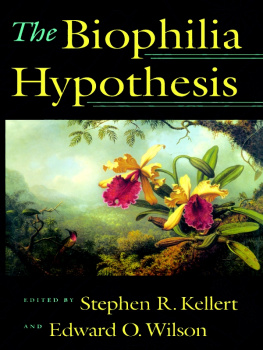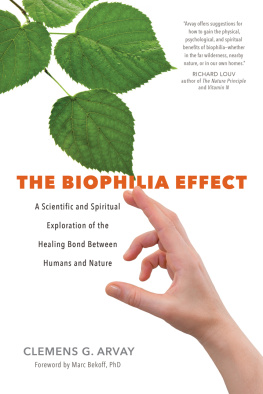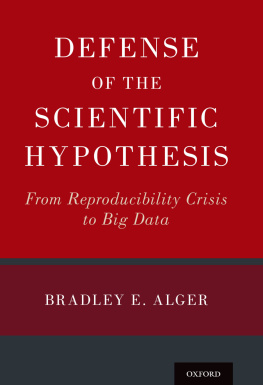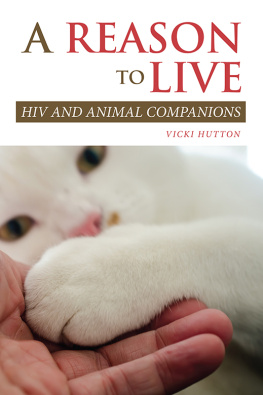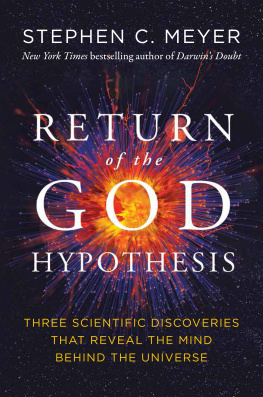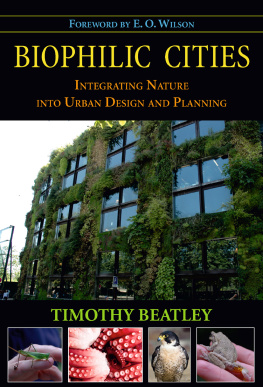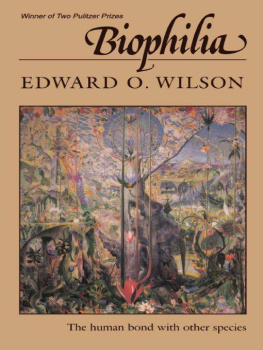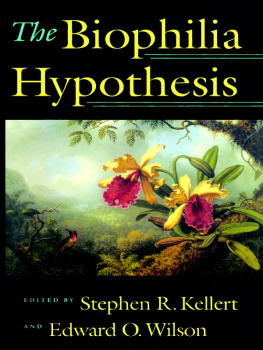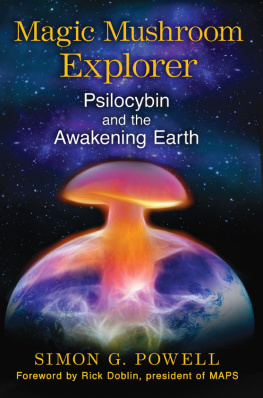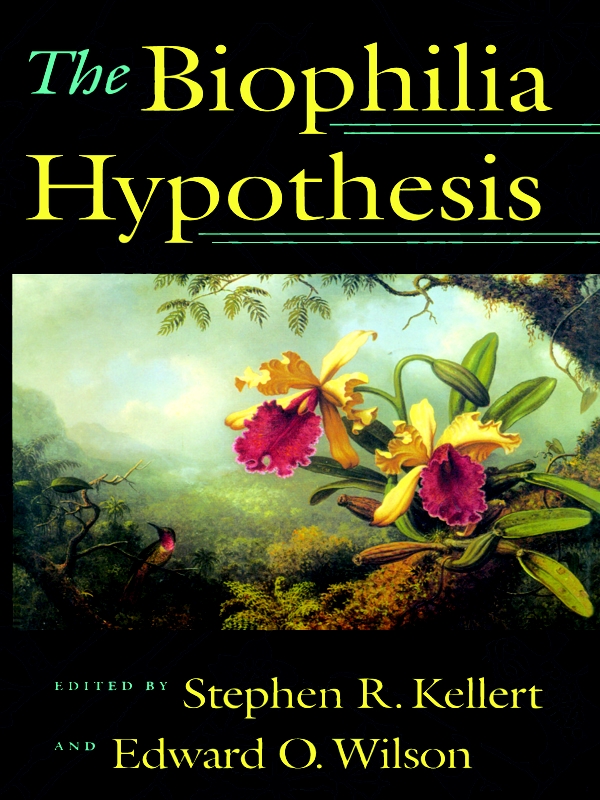Coda
Stephen R. Kellert
T HIS BOOK REPRESENTS the start rather than the conclusion of a journey of exploration. The various contributors have sought to examine elements of the question of how nature, particularly its living biota, has provided humans with an evolutionary basis for our species physical, emotional, cognitive, and even spiritual development. Whatever accomplishments may have been achieved, this book is but one step toward understanding the complicated question of how human affect, intellect, language, culture, technology, and even ethics are molded by a basic human affinity for life and lifelike processes.
Our development as individuals and as a species constitutes more than just the struggle for physical survival. We aspire to something called fulfillment, as well, perhaps a striving after an ideal which every species, especially the more complex forms, appears to manifest as a kind of unrealized potential. The notion of biophilia suggests that this possibility for fulfillment and self-realization may be found in our relationship with the diversity of life around us.
We need other species not only for the promise of material and physical sustenance but, just as important, for the raw material they offer for our psychological and intellectual growth. We can survive the extinction and extirpation of many unique life-forms, just as we may endure polluted water, contaminated air, and toxic soil. Our persistence as a species can allow for far fewer nonhuman life-formsother nations, caught with ourselves in the net of life and time (Beston 1990:394)but will this impoverished condition permit us to prosper psychologically, spiritually, and materially as individuals and as a species?
The notion of biophilia sounds a profound note of skepticism regarding the human capacity to thrive in a biologically depauperate world that has countenanced and abetted in the massive destruction of life. The idea of biophilia asserts that the achievement of our fullest potential will depend on a matrix of complex and subtle emotional, intellectual, and physical interactions with a rich and diverse biota. Beston (1990:394) continues: Whatever attitude to human existence [we] fashion for [ourselves], know that it is valid only if it be the shadow of an attitude to nature.... The ancient values of dignity, beauty, and poetry which sustain [us] are of natures inspiration.... Do not dishonor the earth lest you dishonor the spirit of man.
The essays in this book represent a fledgling attempt to explore a more robust and complex theory of evolution than one based merely on the assertion of the physical struggle to survive. A twenty-first-century review of our effort may conclude that this was but a crude attempt to understand our psychological, aesthetic, spiritual, and physical dependence on nature. This group of scholars will retain a measure of pride, however, in their effor fort to establish a basis for the scientific exploration of the human affinity life in its many myriad and mysterious forms.
REFERENCE
Beston, H. 1990. The Outermost House: A Year of Life on the Great Beach of Cape Cod. In R. Finch and J. Elder (eds.), The Norton Book of Nature Writing. New York: W. W. Norton.
About the Contributors
JARED DIAMOND is a professor of physiology at the University of California Medical School working on laboratory studies on the evolutionary design of membrane transport mechanisms and undertaking field studies of New Guinea bird ecology and behavior. His popular science articles appear regularly in Natural History, Discover, and Nature magazines. His recent book, The Third Chimpanzee (HarperCollins, 1992), is an account of how language, art, and other apparently unique human characteristics arose from animal precursors.
MADHAV GADGIL studied biology in India before obtaining a Ph.D. from Harvard University. He is a professor at the Indian Institute of Science and conducts both field research and mathematical modeling in population biology, conservation biology, and human ecology. He is active in Indian nature conservation and ecodevelopment efforts. Dr. Gadgil is a fellow of the Indian National Science Academy and a foreign associate of the U.S. National Academy of Sciences. He has also served as a member of the Science Advisory Council to the prime minister of India.
JUDITH H. HEERWAGEN is a research assistant professor in psychosocial nursing and in the College of Architecture and Urban Planning at the University of Washington, Seattle. She is a psychologist whose work has focused on behavioral ecology and the application of evolutionary theory to human/ environmental interactions. She has conducted research on environmental preferences and aesthetics and is currently studying the relationship between the environment and human well-being as it relates to gender and life transitions. She is presently a visiting scientist at the Battelle Human Affairs Research Center in Seattle, where she is investigating organizational ecology issues.
AARON KATCHER received his medical degree and psychiatric training at the University of Pennsylvania, where he is currently on the faculty in the Schools of Medicine, Dentistry, and Veterinary Medicine. His research interests have included the impact of emotion and dialogue on physiological states and the relationship between the social environment and disease. During the past twelve years, he has been investigating the influence of social relationships with animals and contact with nature on human behavior and health.
STEPHEN R. KELLERT is a professor at the Yale University School of Forestry and Environmental Studies. He has conducted extensive research and published widely on the subject of human values and perceptions relating to nature, particularly animals. He is a member of the board of directors of the Student Conservation Association, Defenders of Wildlife, and the Xerces Society. He has received awards from the Society for Conservation Biology, the International Foundation for Environmental Conservation, and the National Wildlife Federation.
ELIZABETH ATWOOD LAWRENCE, a veterinarian and anthropologist, received her V.M.D. degree from the University of Pennsylvania School of Veterinary Medicine and her Ph.D. degree in social anthropology from Brown University. She is professor of environmental studies at the Tufts University School of Veterinary Medicine, where she teaches and conducts research on human/animal relationships. Dr. Lawrence is the author of three books and numerous papers dealing with human/animal relationships. Her honors include the Elsie Clews Parsons Award of the American Ethnological Society, the James Moody Award of the Southern Anthropological Society, and the International Distinguished Scholar Award of the Association of Human-Animal Interaction Organizations.
LYNN MARGULIS is Distinguished University Professor, Department of Biology, at the University of Massachusetts. She had a Sherman Fairchild Fellowship at the California Institute of Technology and a Guggenheim Fellowship. She is a member of the U.S. National Academy of Sciences. She has contributed many original publications on cell biology and microbial evolution. She has also participated in the development of science teaching materials from elementary grades to graduate school. She has chaired the National Academy of Sciences Space Science Board Committee on Planetary Biology and Chemical Evolution. She is also a member of the Commonwealth Book Fund advisory board and codirector of the Planetary Biology Internship Committee (NASA Life Sciences, Marine Biological Laboratory, Woods Hole).

